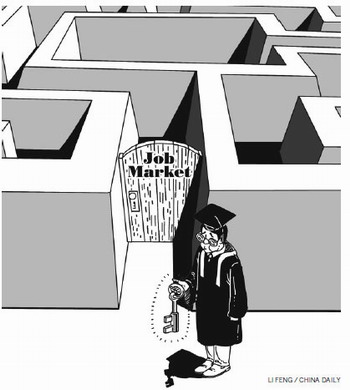
The number of university students, especially in business schools, in China has increased considerably in recent years, giving rise to two important questions: How to ensure that students' time in business schools is well spent, and what approaches to teaching would produce the best results?
The effects of business schools on students should be assessed in terms of their impact on the knowledge, skills and abilities that they apply in their workplaces after passing out of college.
So, what can be done to support the transfer of knowledge from the classroom to the workplace? Extensive studies in human resource management (training transfer literature) have yielded interesting insights that are also relevant to business school education in China, and one of them is that students progress down a learning curve. Initially, they perform new tasks they learn in a self-conscious way. Over time and with practice, these tasks become automated. Declarative knowledge is turned into proceduralized knowledge. In the later stages of the learning process, students may not be able to consciously recall (declarative) knowledge but can access it (proceduralized knowledge) at a subconscious level.
Moving from the declarative to the proceduralized stage of knowledge representation requires practice beyond, say, delivering a lecture in a seminar and a bit of homework. Of course, one might argue that students rehearse certain meta-skills throughout their college years, such as analytical and critical thinking, researching and applying the results to solve a problem, working in teams and interacting socially, which they are more likely to carry to the longer-lasting proceduralized stage.